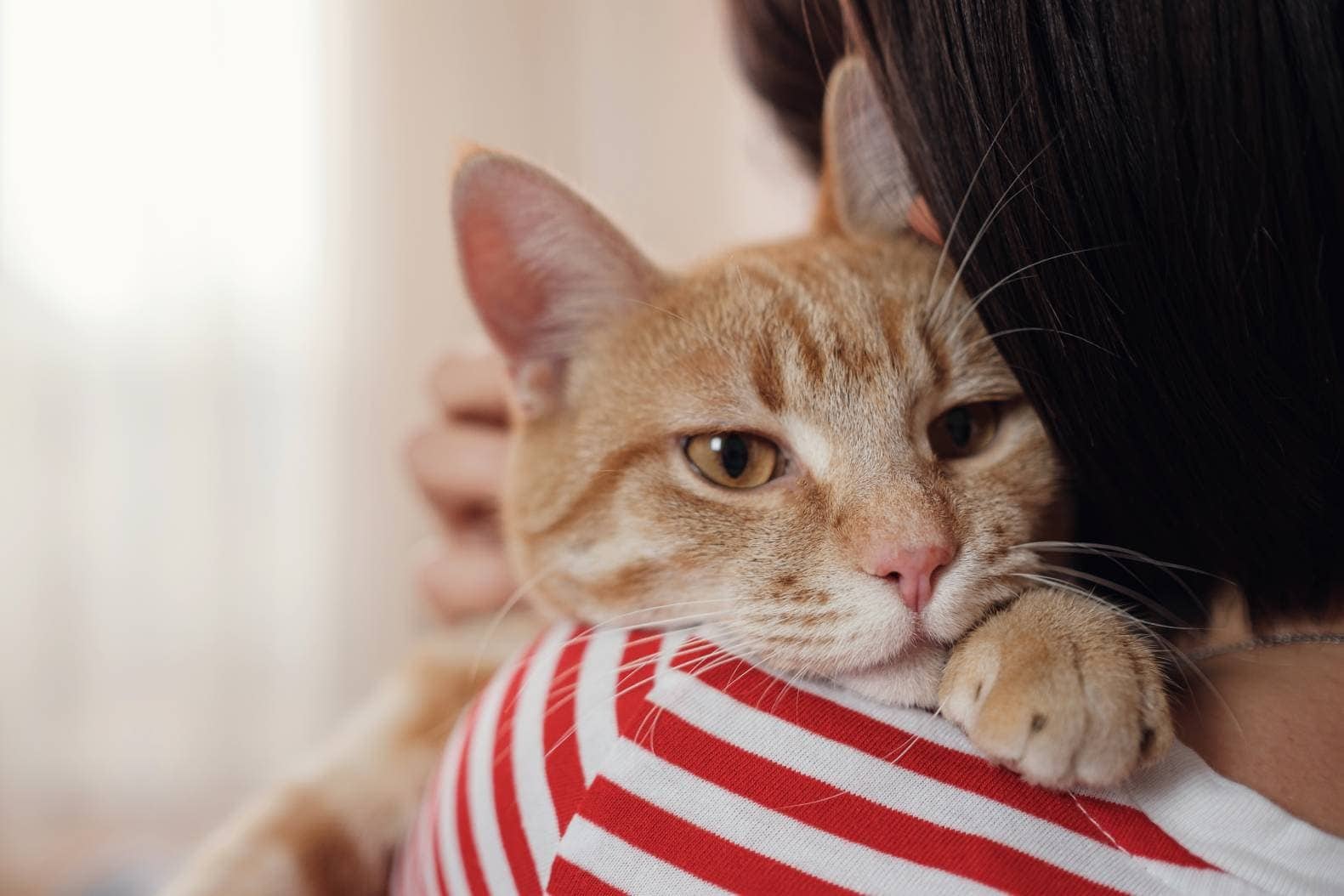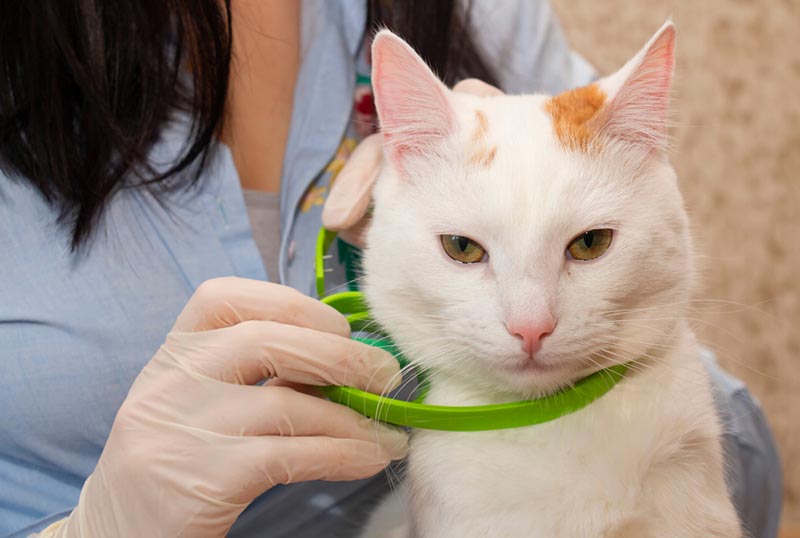How to Discipline a Cat for Biting: 7 Vet Approved Methods

Updated on
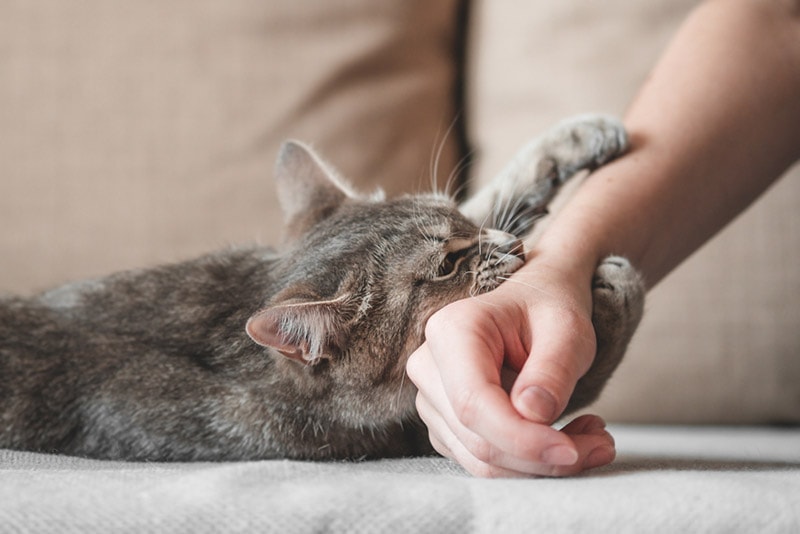
Owning a cat can be a fun and rewarding experience. Purring cuddles and affectionate meows will bring a smile to any cat owner’s face, but if your cat has a biting problem, that smile will be replaced with an “ouch” face. No cat owner wants their cat to bite, especially when you have family or friends over for a visit. A biting cat can cause injuries to you and others, and you’ll want to nip it in the bud as soon as possible.
In this guide, we’ll list seven tips on how to discipline a cat for biting and how to resolve the issue for good.
Before You Start
Cats may bite for a variety of reasons. Kittens may bite playfully, but when an adult cat bites, there may be an underlying issue.1 Adult cats will bite when they feel the need to protect themselves, such as being in pain, stressed, frustrated, or simply acting on their predatory instincts. You’ll want to ensure your cat doesn’t have a medical problem before starting any discipline processes, and you should make an appointment with your veterinarian to ensure your cat is healthy.
Now that a medical issue is ruled out, let’s check out some tips for stopping this unwanted behavior.
The 7 Ways to Discipline a Cat for Biting
1. Voice Your Pain
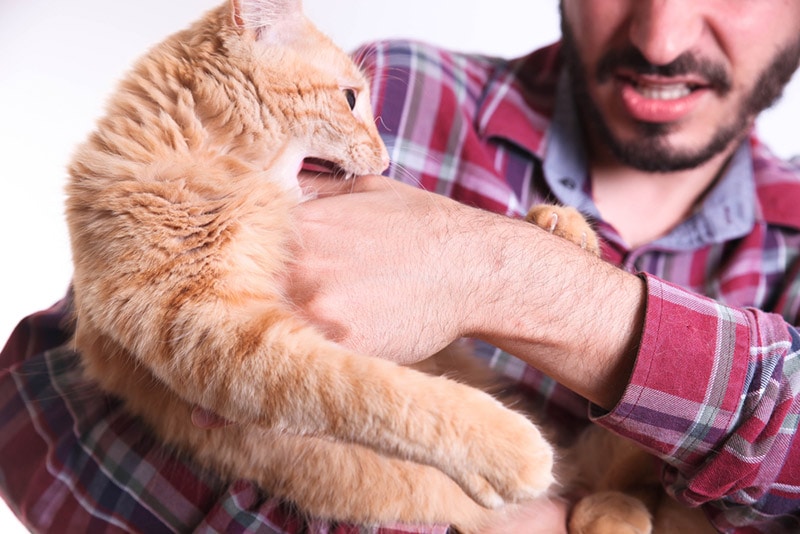
When we say “voice” your pain, we don’t mean “scream” your pain. When your cat chomps down on whatever unlucky body part is in their jaws, firmly say “no” or “ouch.” It’s important not to scream at your cat because this will only upset your cat and cause even more biting. Don’t yank your arm or finger or whatever your cat has ahold of either; this could cause your cat to continue biting and cause even more injury to you.
2. Avoid Provoking Aggression
Some cats will bite if you do something they don’t like, such as being held. Of course, as cat owners, we want to hold our cat and give them lots of love, but if your cat is not on the reciprocating end, their instinctive reaction will be to bite. Cats are notorious for being independent, and some are even downright aloof. If you have a cat that is not ready for your affection, abort the mission. Your cat may let you pet them over time but be aware that your cat may never be fully accepting of being held.
3. Observe Body Language

This one ties in with avoiding provoking aggression, but it’s an excellent tool to use to avoid an unwanted encounter with your cat. Cats are not like dogs; dogs are usually happy to see you and want love and affection. Cats want your love and affection when they want it and not the other way around. Look for these signs your cat is annoyed and may bite.
- Flattened or pinned ears
- Growling
- Large, dilated eyes
- Low-to-the-ground stance
- Stiff tail
- An arched back
- Puffed-out fur
4. Don’t Startle Your Cat
You know the reaction when someone sneaks up on you, right? You may jump or yell at the person out of a natural response or instinct. Now, think about your cat’s reaction if you sneak up on him—odds are they’ll bite out of fear or by being spooked. You probably are not fond of someone sneaking up and startling you, so don’t do it to your cat!
5. Don’t Use Your Hands as Toys
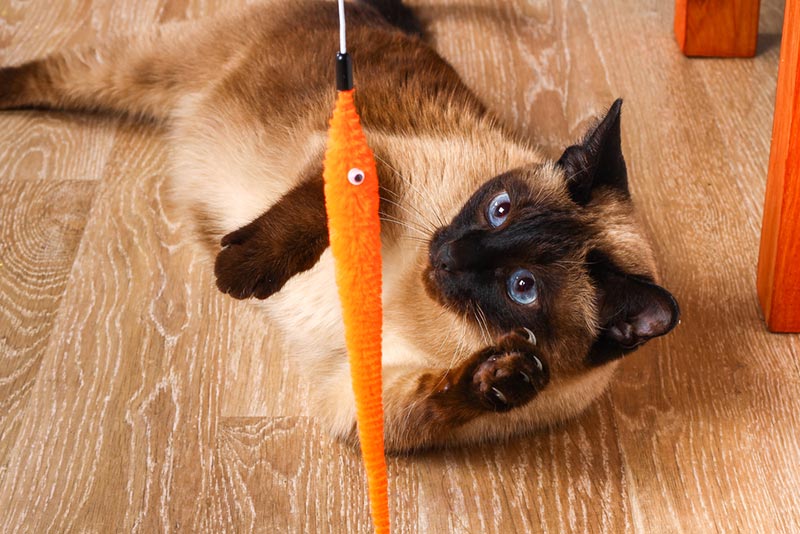
It may seem fun when your cat is a kitten to play with the tiny tike with your hands. We should note that any unwanted behavior from kittenhood will likely carry over into adulthood, and if you don’t correct bad behavior in your kitten, be prepared to figure out how to do this when your cat is an adult. Now, back to your hands. Instead of using your hands, ensure you have plenty of cat toys for your cat to play with. Your cat will understand they can bite at the toy, but not your hand.
6. Reward Good Behavior
Now that your cat is not biting, reward your cat for the desired behavior. Using positive reinforcement is a true and tried method that will give you the results you want. Never hit your cat, grab by the scruff of the neck, or yell, as these types of behaviors will only make your cat afraid of you, which will get you nowhere. If your cat likes treats, give them one when they don’t bite you to show they are on the right track.
7. Hire a Professional
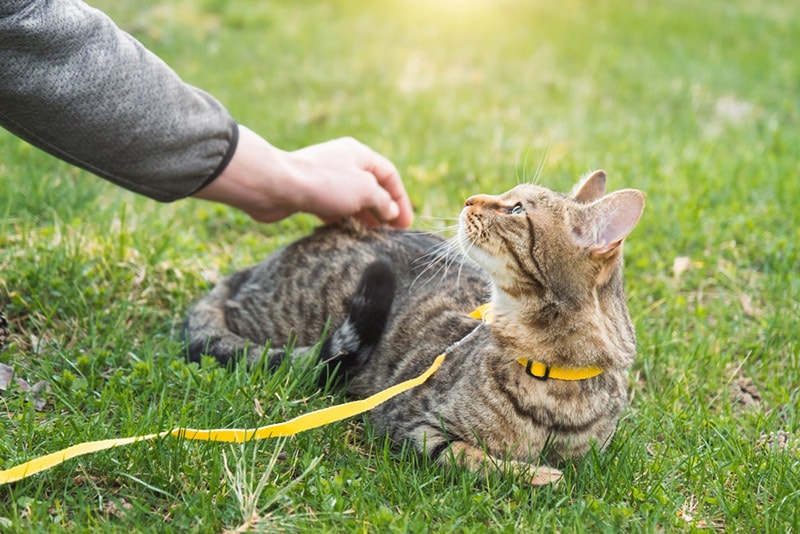
If all else fails, you can always enlist the help of a professional cat trainer. Board-Certified Animal Behaviorists can help you find someone in your area to help you. We know you probably don’t want the issue to escalate to having to hire a professional, but hiring a professional can help you establish a terrific relationship with your cat that doesn’t involve biting.
Conclusion
Having a cat that bites can be frustrating and seem hopeless, but don’t fret! It is possible to discipline a cat when and if they bite you, but you’ll need to muster up patience. Be consistent in whatever methods you use and remember to never use physical punishment to discipline your cat. In time, your cat will learn that you are not to be bitten, and you can form an everlasting bond that will last many years.
Featured Image Credit: Sozina Kseniia, Shutterstock




